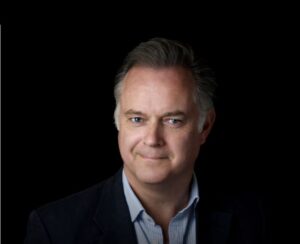
Senior Partner
In short, mindfulness is defined as the “awareness that emerges through paying attention, on purpose, in the present moment, non-judgementally, to things as they are” (Segal, Williams, and Teasdale, 2002).
Let’s break down this definition to make it more accessible to the average person.
I’ve lost count of how many times people have told me that mindfulness is merely “stealth Buddhism” or dismissed it as something “soft and fluffy,” not suited for individuals at the forefront of their fields. The truth is, none of these comments align with what proper mindfulness education entails. Let’s delve back into the definition…
How often do you arrive somewhere and realise you have no recollection of the journey? How frequently does your daily commute become an automatic process? Attention is a skill that requires practice and time. When cultivated, it allows us to perceive so much more — from savouring the taste of our food to discerning subtle cues that something may not be as it appears.
When we devote our full attention to a task, we often achieve better results and notice things we would otherwise overlook. Remarkably, only 12% of our mental energy is typically directed toward the present moment, while a staggering 88% is spent dwelling on the past (which we can’t change) or worrying about the future (over which we have limited control). Focusing on the present in all that you do enhances concentration and fosters a more responsive, rather than reactive, approach.
How frequently do we find ourselves judging our own thoughts — thinking “I should have done that” or questioning why certain thoughts persist? This tendency is perfectly normal, as our minds are wired for survival and risk assessment, which keeps us sharp and prepared. However, judgment demands considerable effort, both consciously and subconsciously, and can be draining. There are aspects we can change, but there are also elements entirely beyond our control — these we must learn to let go.
In my perspective, mindfulness offers a set of techniques that can improve the quality of our lives. This, in turn, may lead to increased productivity, better relationships, and a reduced tendency to not be so reactive in our daily lives. Give it a try and witness how it can work for you.
Tim Boughton is a Senior Partner based in Itriom’s London Office.
Itriom is the global impact platform helping leading families shape a better world. Itriom’s platform enables families to refresh and redesign their values, aligns them with the right UN Sustainable Development Goals, combining them in an agreed purpose and a Family Impact Charter. Itriom’s platform supports the development of impact initiatives and whilst providing discrete and secure spaces for peer-to-peer messaging and collaboration. Itriom’s core practices in leadership, geostrategy, and sustainability benefit clients by developing strategies to engage and support the next generation in building a lasting legacy of which families can be proud.
Itriom’s leadership and resilience practice instils all-encompassing leadership in support of principals of leading families and the next generation preparing for family succession, transition and evolution.
© 2024 Itriom Limited. All rights reserved. Republication or redistribution of Itriom’s content, including by framing or similar means, is prohibited without the prior written consent of Itriom Limited. This material is provided for informational purposes only.
ESG Consultant
Alizah is an ESG Consultant and researcher. She supports Itriom developing sustainability related products and services, helping our clients identify potential opportunities for creating positive environmental, social and sustainable impact.
ESG Analyst
Georgie is an ESG Analyst and researcher. She researches trends, develops insights and reports, and writes insight articles on sustainability and ESG related topics to ensure Itriom’s clients are up to date on the latest policy, progress and initiatives to inform the platform and help our clients maximise their positive impact.
Senior Partner
Practice Leader – Leadership & Resilience
Renowned family office thought leader, Tim works with UHNW families to ensure they are fully equipped to deliver their legacies inter-generationally and effectively.
Associate Partner
Practice Leader – Sustainability
Dr. Herb creates methodologies and frameworks for managing, measuring and assessing sustainability performance. His work identifies where maximum impact can be made.
Senior Partner
Practice Leader – Geostrategy
Simon harnesses research, liaison and networks globally to identify opportunities for Itriom, building the knowledge needed to deliver intergeneration legacies for UHNW families.
Managing Partner
Practice Leader – Strategy